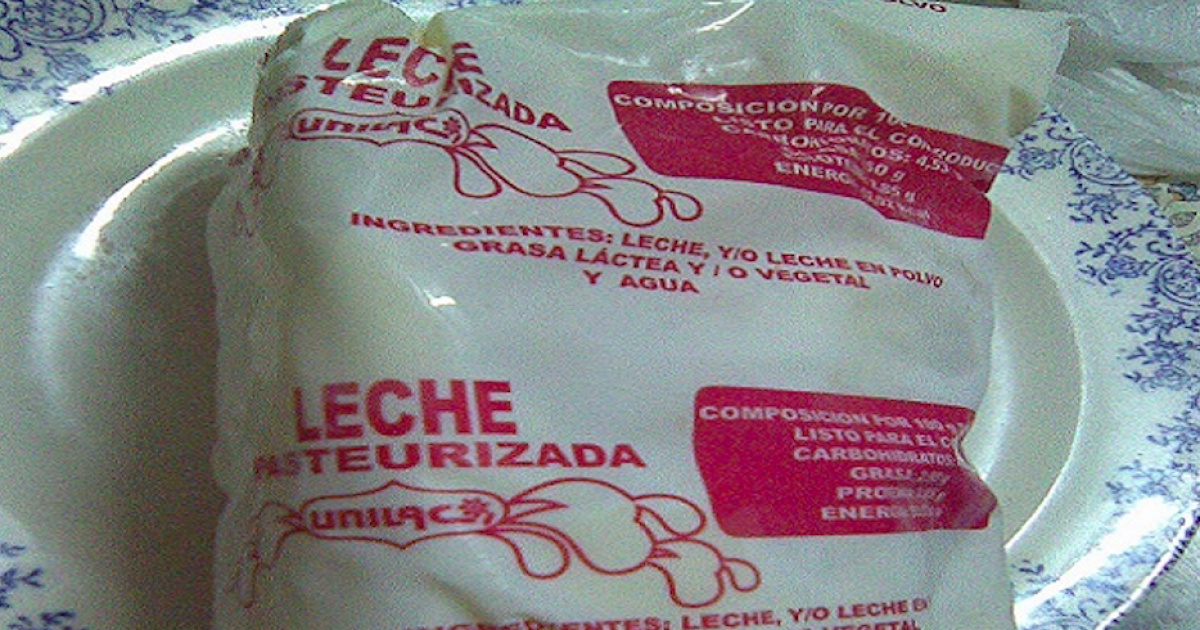Amid rising concerns about the shortage of basic products, the government of Santiago de Cuba began distributing milk for children aged two to six on Saturday, ensuring the supply only for the next seven days. The Santiago de Cuba Dairy Products Company announced on Facebook that the distribution would be carried out "as quickly as possible," but warned of potential delays due to the "sequential arrival of containers."
The brief note from the dairy company did not specify what would happen to children under one year old, leaving many questions among internet users. The statement also did not clarify what would happen after the seven-day milk supply runs out, leaving families, already suffering from the constant shortage of food and basic products, uncertain about how they will cope once these limited rations are exhausted.
In the comments section, the Santiago de Cuba Dairy Products Company attempted to justify the situation by citing the lack of foreign currency, arguing that without income from tourism, the country is facing serious difficulties in acquiring milk from abroad. According to the entity, each container costs approximately $80,000, exacerbating the supply crisis.
However, this argument has been met with skepticism by netizens, as it highlights the critical dependence of the Cuban economy on a sector that has dwindled in recent years, leaving families without answers about how to ensure their children's nutrition amid this chronic shortage.
According to data from the National Office of Statistics and Information (ONEI), Cuba currently produces less fresh milk than during the "special period" of the 1990s. This crisis was evidenced when a shocking video posted on social media showed several elderly people collecting powdered milk from a street in Santiago de Cuba. Bent over, they were gathering the spilled powdered milk with their hands and placing it in plastic bags, as shown in a brief video reel posted on Facebook by reporter Yosmany Mayeta.
Sanitary Concerns Highlight Dairy Industry Crisis
Recently, a health crisis also highlighted the ongoing issues in the dairy industry when a food poisoning outbreak caused great concern in the municipality of Corralillo, Villa Clara. Sixteen people, including several children, showed symptoms of dehydration, diarrhea, and vomiting after consuming locally produced condensed milk.
The product in question was distributed by the local Agricultural Company and came from the Sagua Dairy Company, as explained last Thursday on social media by Dr. Juan José Pulido López, Director General of Health of Villa Clara. As of last Saturday, the affected individuals "are in their homes in good health," according to an official source from the Ministry of Health in that province.
"It has been more than 72 hours since any new cases appeared. We reiterate that we did not have any severe patients or fatalities," indicated Dr. Juan José Pulido López, Director General of Health of Villa Clara, on Facebook.
Questions Arising from Santiago de Cuba's Milk Shortage
The recent milk shortage in Santiago de Cuba has raised several important questions among the populace. Here are some frequently asked questions and their answers to provide clarity on the situation.
What will happen to children under one year old?
The government has not provided any information about the milk supply for children under one year old, leaving many parents concerned.
How will families cope after the seven-day milk supply runs out?
The lack of clarity from the government has left families uncertain about how they will manage once the seven-day milk supply is exhausted.
Why is there a milk shortage in Santiago de Cuba?
The shortage is attributed to the lack of foreign currency and the country's dependency on tourism revenue, which has significantly decreased.
What measures are being taken to ensure the safety of dairy products?
Following the recent food poisoning outbreak, it is unclear what specific measures are being implemented to ensure the safety of dairy products. The government has yet to provide detailed information.
